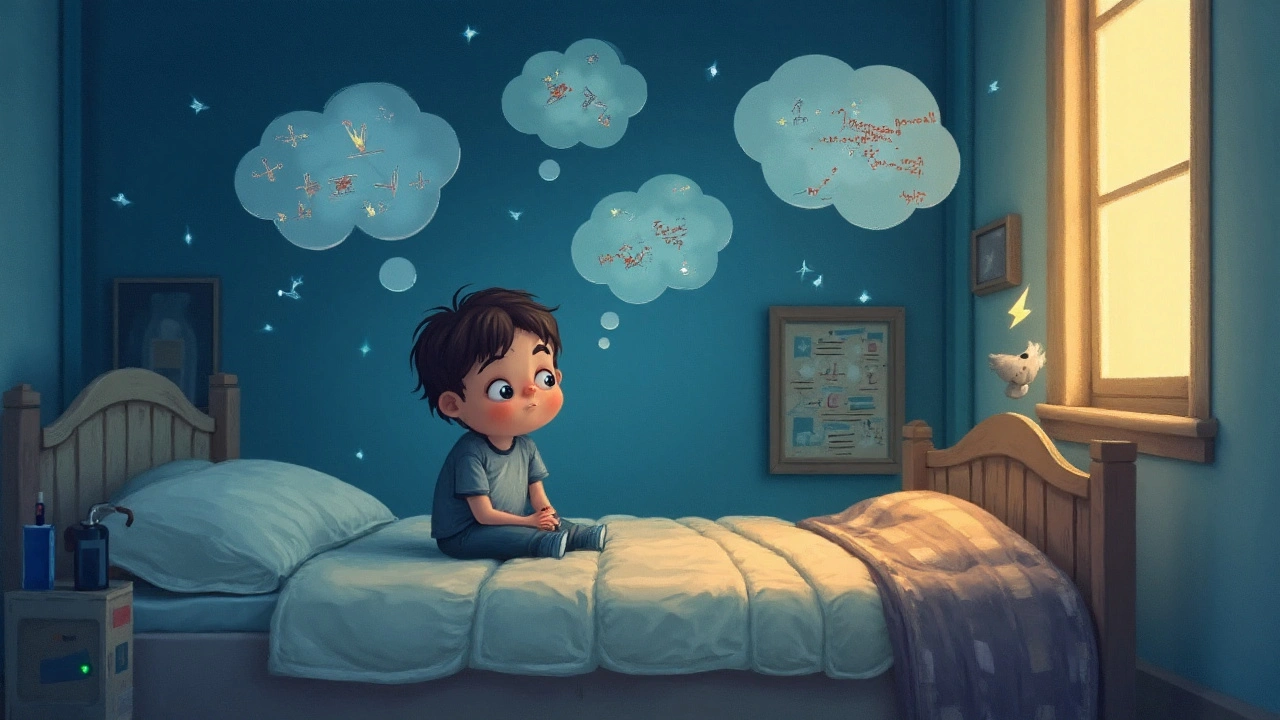
How Sleep Disorders Affect Children’s Development - Risks, Signs & Solutions
Explore how sleep disorders disrupt children's cognitive, emotional, and physical growth, learn the signs, and discover effective treatment strategies.
Ever wonder why your toddler loves to stack blocks or why a preschooler can suddenly count to ten? Those moments are more than cute—they’re signposts of healthy development. The good news is you don’t need a fancy degree to nurture them. A few everyday habits can make a big difference.
Kids learn by doing. When you hand them a puzzle, a ball, or even a kitchen spoon, you’re giving them a chance to practice problem solving, coordination, and language. Let them lead the play; ask open‑ended questions like, “What do you think will happen if…?” That turns simple fun into a brain‑boosting activity.
Outdoor time matters, too. Fresh air and a little sunshine help regulate sleep and mood, which are key for learning. A quick walk to the park, a backyard chase, or a garden digging session gives muscles, balance, and social skills a workout.
What’s on the plate affects how the brain works. Aim for color on the plate—green veggies, orange fruits, lean proteins, and whole grains. Foods rich in omega‑3s, like salmon or walnuts, support memory and focus. Don’t forget calcium and vitamin D for strong bones, especially during those rapid growth spurts.
If your child is picky, keep it low‑pressure. Offer a bite, pause, and move on. Re‑introducing foods later often works better than a forced finish.
Kids thrive on predictability. A bedtime routine—brush teeth, read a story, lights out—signals the brain it’s time to wind down. When sleep is solid, attention span and emotional regulation improve, making it easier for them to tackle new skills.
Meal times, homework slots, and play periods can follow a similar pattern. When children know what’s coming next, they feel safe and ready to explore.
Language development isn’t just about words; it’s about connection. Narrate your day: “We’re putting on shoes. One foot, then the other.” Ask about their feelings: “How did that make you feel?” Reading together introduces new vocabulary and sparks imagination.
Listening matters, too. When a child shares a story, give them eye contact and respond genuinely. That reinforces confidence and encourages more communication.
Every child hits milestones at their own pace. Typical signs include holding a cup at 12 months, saying a few words by 18 months, and drawing a circle around age five. If you notice a big gap—like no words by two years or trouble walking—talk to a pediatrician. Early guidance can smooth out challenges.
Remember, the goal isn’t to compare your kid to the next kid on the block. It’s to provide the right tools and love so they can get where they’re meant to be.
In a nutshell, blend play, nutrition, routine, and conversation, and watch your child’s development unfold naturally. Small, consistent actions today set the stage for a confident, capable tomorrow.

Explore how sleep disorders disrupt children's cognitive, emotional, and physical growth, learn the signs, and discover effective treatment strategies.